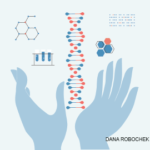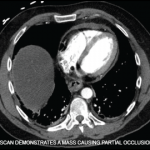In August 2019, Michael received a call from Dr. Ombrello, who had been working with David Beck to find patients whose clinical histories fit the pattern of what would come to be called VEXAS. Many aspects of Michael’s history, including his fevers, cytopenias, chondritis and response to glucocorticoids, indicated that he may have the condition, which prompted genetic testing of the blood samples he had provided at the NIH in 2011.
Genetic Mutation Found
Dr. Ombrello explained to Michael that he’d been found to have the UBA1 gene mutation and that he likely had VEXAS. The NIH team asked if he could come back to Bethesda for more testing to help researchers learn about the condition.
Michael’s wife, Nancy, recalled to me how incredibly sick he was by this time; he was dependent on blood transfusions and was too weak to tolerate a bone marrow transplant. But Michael was determined to help improve the scientific knowledge of this new disease.
“He knew he was going to be a guinea pig,” Nancy told me, “but he wanted to do whatever he could to help.” This was in keeping with Michael’s giving nature; years before, when Nancy’s mother had become physically disabled, he insisted that she move into the family’s home, where she spent the last two decades of her life.
The day before Michael was scheduled to fly to the NIH, he was still in the hospital and was told he might die if he left.
“They topped him off with a few transfusions, he signed himself out, and we got home at 11 p.m. for an 8 o’clock flight the next morning,” Nancy recounted.
Michael stayed at the NIH for more than a week and gave innumerable vials of blood, which he had in short supply.
Outcome & Legacy
When he returned to Chicago, his disease continued to progress. He had several more hospitalizations, including one in early December 2019. It was at that time that his oldest daughter Laura shared with him the news that she was pregnant. Michael was overcome with emotion as he thought of Laura becoming a mother for the first time, while realizing that he would likely never get a chance to meet this child.
Not long after learning of his daughter’s pregnancy, Michael’s doctors organized a family meeting and explained that there was simply nothing else that they could do. Michael entered into hospice care and traveled with Nancy back to his home.



